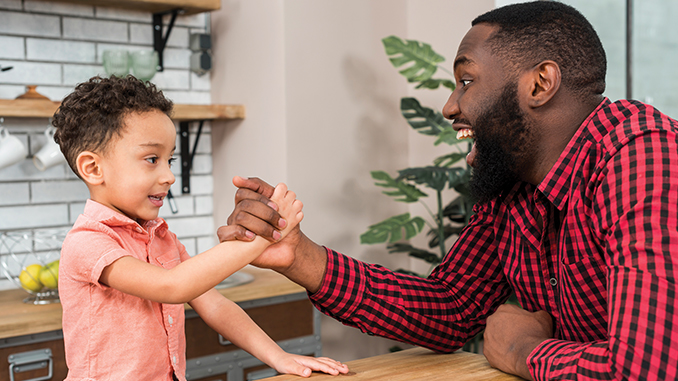
Simple advice from educator and author of Parent’s Pocket Guide to Surviving the Preschool Years.
Published: April 30, 2024
By: Danielle Lindner
As an educator, I’m constantly reminded of things that we as a society used to do decades ago that we don’t need to do anymore. We don’t go to the library to search the microfiche machine for information about a topic. We don’t need spare change to make photocopies. We don’t even have to go next-door to see our neighbor or leave the house to head to work. We can FaceTime or schedule a Zoom meeting. What is most disappointing is that we don’t need to write personal notes or thank you cards because we have the ability to text or send an email. But just because we don’t have to, doesn’t mean that we shouldn’t. While many of these changes streamline our life and they have made things easier, there are things from the past that we don’t do anymore (or require our children to do) that really need to become part of the fabric of our lives again.
When I was five years old, my mother would give me a pre-printed card that said “Thank you for coming to my party. I love the gift! Love, Danielle.” I sat there until the bump on my finger was red and sore making sure that every single person who attended my party would receive a thank you note.
I remember telling my own children that when we go to our friend’s house to visit, the rules that might be acceptable in our house may not be in their house. When we visit, we must respect the rules of the host. While my kids are allowed to take the couch cushions off my couch and build a fort, it does not mean that behavior is welcome or permitted at the house of the host. I would remind my kids to say please and thank you, to look someone in the eye when they are talking to you and to always be respectful of those around you.
Over the past few years, I’ve noticed that much of the customs and rituals revolving around respect and courtesy have fallen by the wayside. For the most part, kids sending a handwritten thank you is a thing of the past. I see parents at restaurants allowing their children to run around the table, throw food on the floor, and disturb other patrons. I hear stories from upset friends and colleagues who have guests with young children over that the children did not respect their home. They jumped on their couches. They didn’t clean up after themselves and they didn’t listen to their parents when it was time to go.
Once, when having lunch in a nice New York City restaurant, I saw a family sitting across from us with a little boy who was as adorable as could be. However, the minute his mom told him he couldn’t use an iPhone at the table and he had to eat his food, the adorable little boy disappeared. He picked up two glasses from the table and threw them across the restaurant. I thought to myself, “Wow, this little boy is going to be in a heap of trouble!” But I was wrong. The parents laughed and smiled and said “Come on now, eat your food and if you do, you can have the phone back.” I thought for sure that John Quinones from the show “What Would You Do?” had to be hiding somewhere, ready to pop out and chastise all of the patrons for not saying something to these parents. But, no. It was just an example of parents who didn’t understand that by accepting that type of behavior, it was only going to make their parenting harder down the line.
I’m sure these things have happened many times in the past. However, as the world gets busier and faster, we need to take the time to slow down and teach our children about being good conscientious, caring, and courteous little humans so they grow up to be good, conscientious, caring, and courteous adults. Here are a few things to remember that will not only make your life as a parent easier but will also give your child the tools and foundation they need to become a good human.
Ten Tips to Raise a Good Human
- Say “please” and “thank you.”
- Listen when others talk and make eye contact to show that you are interested.
- Always share gratitude with others. Take time to write a thank you card and mail it!
- Ask before you touch things that aren’t yours and always put things back before you leave.
- Solve problems by talking — not biting, hitting, or raising your voice.
- Share your toys and take turns playing.
- Use kind words with friends and family.
- Follow the rules at school, at home, or when visiting others.
- Always say sorry if you hurt someone and try to make things right.
- Be patient and wait your turn.
These things are simple. They’re easy to remind our kids to do and they are easy for us to model. Kids will follow our lead and if we show that these things are important to us, they will be important to them.
Danielle Lindner is an educator and author. As an educator, Danielle is noted for having founded London Day School and recently published Parent’s Pocket Guide to Surviving the Preschool Years. To learn more, visit http://www.daniellelindner.com
